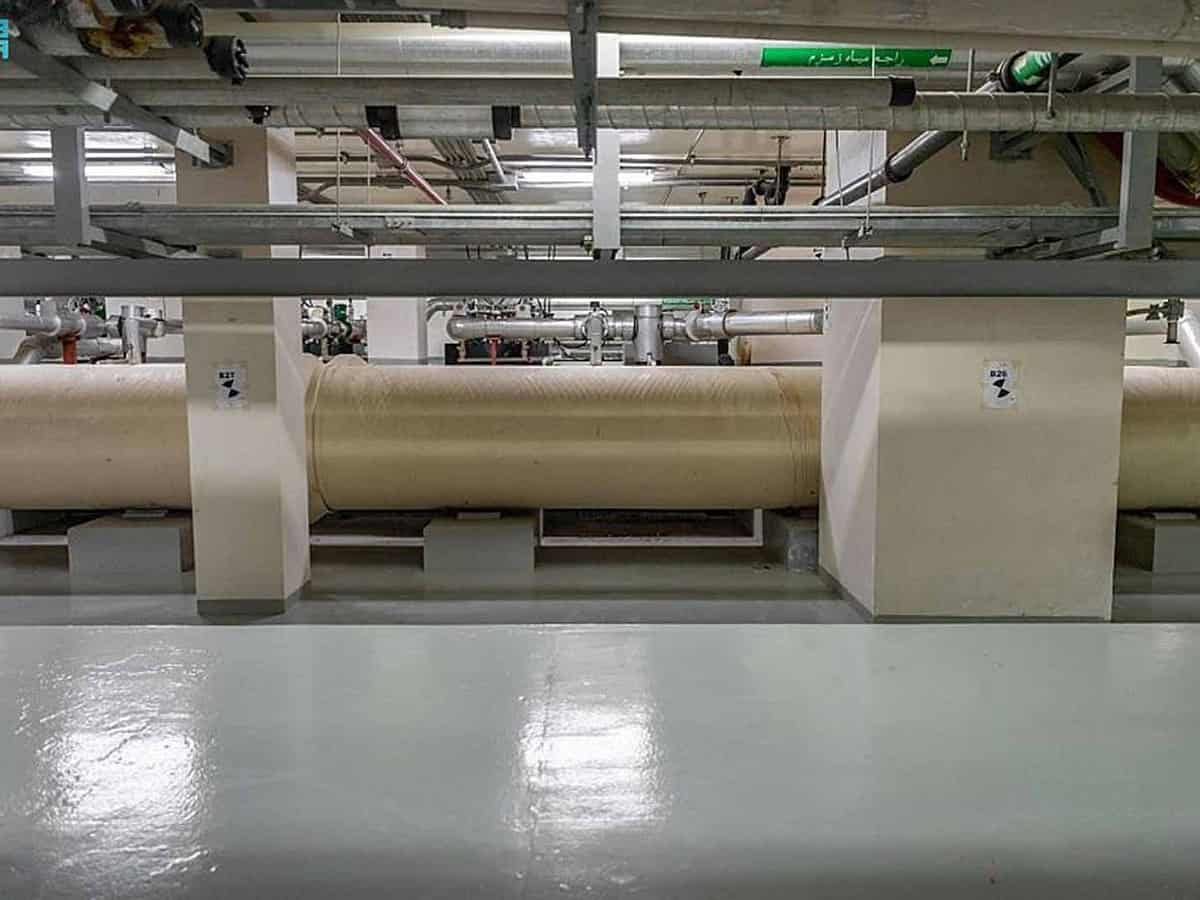
Riyadh: The Kingdom of Saudi Arabia has installed the world’s two largest cooling stations at the Grand Mosque to ensure that worshipers perform their rituals in a cool and fresh atmosphere, local media reported.
Ramzan is the peak Umrah season and the cooling stations are instrumental in purifying the air in the Grand Mosque.
The General Presidency for the affairs of the Grand Mosque and the Prophet’s Mosque strives to ensure fresh air inside the mosque using ultraviolet light air purification technology.

The air conditioning is purified nine times a day, before being released into the mosque, through special air-conditioning devices that supply the system of the Grand Mosque with cool air. The air is also purified from germs by 100 percent.
The presidency provides backup cooling stations next to the main stations, to control temperatures in the event of a station failure and to ensure the purity of the air distributed inside the Grand Mosque.

The world’s two largest cooling stations are —the Ajyad station, which produces 35,300 refrigeration tons, of which about 24,500 refrigeration tons are used and the new central plant, which has a capacity of 120,000 refrigeration tons.
The second—is the new central station, which has a capacity of 120,000 refrigeration tons, which feeds the third Saudi expansion of the Haram in addition to half of the endeavor, and it is scheduled to feed all sides of the Grand Mosque and its facilities in the future.


Director of the General Administration of Operation and Maintenance, Engineer Amer Al Luqmani, said, “We are currently in the process of cooling the terminal and supplying it with 5,500 refrigeration tonnes from the Ajyad station, and the air purification filters inside the air conditioning rooms are cleaned on a daily basis throughout the year.”
“They are subject to meticulous maintenance and cleaning operations by highly qualified engineering and technical cadres, who supervise these works to ensure implementation according to technical principles and using the latest technologies,” he added.



